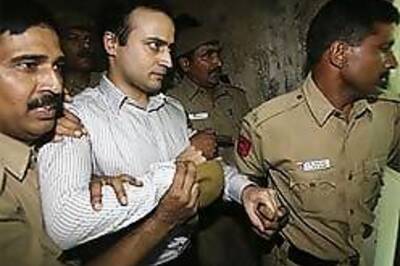
views
window._taboola = window._taboola || [];_taboola.push({mode: 'thumbnails-a', container: 'taboola-below-article-thumbnails', placement: 'Below Article Thumbnails', target_type: 'mix' });Latest News
Two things happen when you read a really good book. The first is that you disappear into the book, absorbing its world completely, always able to recall and re-enter it even when you have to function in the real world,” said Swarna Rajagopalan, writer and founder of Prajnya Initiatives, after releasing Once There was a Girl, recently. The book is the English translation of Vattathul, a Tamil novel by author and poet Vatsala, which has been translated by her daughter K Srilatha, writer and academic.
“The second is not as comfortable - you start to ask yourself difficult questions. And for me, with Once There was a Girl, some of those questions are: ‘Why do I assume that when a woman writes a book, the female characters must be nice people? Or even, that female characters, especially protagonists, must be sympathetic characters? What do I expect from a book written by a feminist? Or what is a woman writer’s book?’ I don’t even fully understand these questions, honestly,” Rajagopalan added.
Vatsala, who also has the popular book of poems Suyam to her credit, is known for her feminist perspectives and independent approach to her literary works. Vattathul, which won the Tiruppur Tamil Sangam award for best novel in 2008, is the story of a Brahmin girl with a lot of spunk.
“I belonged to a time when society believed that all a woman needed to live was food, clothes, a roof over her head and a husband — the last one being the most crucial of the lot,” said Vatsala. “But fortunately or unfortunately, what I needed was food, clothes, a roof over my head and self respect. I was 26 years old and I had no idea that such a personal decision would change the way society looked at me,” she added, referring to her decision of ending her marriage. She was 48 when she realised that she was not the only one with that pain. “My personal pain turned into social anger and I wrote. I still write,” said Vatsala.
Srilatha said that the point of the translation was not to recreate a new English text, but restore the original Tamil version. “Sort of like restoring an old painting,” she said. Those who have read the original would notice the addition of a few extra chapters in the English translation. “These chapters belonged to one of the first few drafts of Vattathul and we believed that the text belonged to the book,” explained Srilatha.

















Comments
0 comment